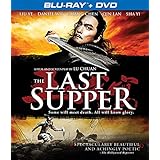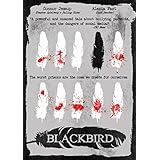
The Warner Archive 6-disc DVD release of the 1973-74 ninth season of the true-crime drama series "The F.B.I." wraps up this series with this collection of the final 23 episodes of the program. As the Unreal TV review of the Archive release of the eighth season states, these hour-long dramas are fascinating because they are true. Each offering in this Quinn Martin production is based on an actual F.B.I. case.
The constants in the final season extend beyond Inspector Erskine, whom Efrem Zimbalist Jr. seems born to play, engaging in at least lukewarm pursuit of individuals who commit a nefarious act at the beginning of the episode and generally end up in handcuffs at the end. These perpetrators, regarding whom any resemblance to actual persons living or dead is not coincidental, amusingly reflect the culture of the day.
Another (often hilarious) element is the narration near the beginning of each episode that essentially explains how local law enforcement weasels out of conducting an investigation by finding a flimsy excuse to pass the buck to the feds. An especially egregious example is a victim coming to rest just outside the fence around a military facility providing a basis for asserting that the underlying offense occurs on federal land.
The good folks at Archive show their usual good instincts in selecting the following clip, which comes courtesy of YouTube, from a ninth-season episode as the preview clip for this set. The nature of the crime and the checkered suit that a character is wearing are perfect examples of the era and this season. Further, the narration both illustrates the exposition described above and evokes memories of similar exposition in the '66 "Batman" series that Archive is releasing on DVD on November 11 2014.
The hippie-like anarchists and otherwise counter-culture types from earlier seasons have morphed into general outcasts, professional criminals, and plain old folks who break the law for assorted reasons. The depressed boozy suburban housewife survives the transition; a hilarious example from the ninth season has a sloppy drunk spilling her drink all over a very composed Erskine.
A big change is that William Reynolds, who plays Agent Colby throughout virtually the entire series, bows out this season. Shelly Novak picks up this slack in his role as Special Agent Chris Daniels. Phillip Abbott sticks it out to the end in his role as Assistant Director Arthur Ward, who is Bosley to "angels" Erskine and Daniels.
The season premiere also shakes things up a bit by focusing more on the investigation regarding an armored car robbery than on the actions of the bad guys in the wake of their offense. This unusually in-depth look at the mechanics of a manhunt is particularly interesting.
The second episode is wonderfully campy in that it guest stars Hal Linden of the '70s sitcom "Barney Miller" as a man who commits a kidnapping after snapping. The nature of his relationship with the mother of his victim and the hoops through which he forces the older woman to jump makes for great '70s-style cop drama. One could only hope that Starsky and Hutch or Baretta would team up with Erskine and Daniels to make this one a very special episode.
A wonderfully bizarre episode has a bank robber escape from prison to have his family help him pull off a job. The big dumb kid in the gang adds wonderful humor to this one.
The penultimate episode deserves a place in the list of Top 20 (if not Top 10) best "The F.B.I." episodes. This one has future "Newhart" star Mary Frann as a rookie F.B.I. agent who is called up to the big leagues to assist Erskine with a case involving someone who is attacking the members of a sorority. This episode seems to test the waters regarding a spinoff starring Frann, but nothing seems to come from it.
Another cool bit of casting has future "Hill Street Blues" star Daniel J. Travanti co-starring with Frann nearly 10 years before they appear in a hilarious scene in "Newhart."
On a related note, Joan Van Ark proves herself to be the Charo of "The F.B.I." by making the fourth of her four appearance in this series. This title, which is aptly titled "The Vendetta," has Van Ark playing a moll who is caught up in a power struggle between two high-level mobsters.
The terrific final episode pits Erskine and Daniels against a psychotic criminal in a literal life-and-death struggle out in the wilderness. Watching said malfeasor constantly taunt an already on edge Erskine is almost as much fun as watching the latter march the former out into nothingness at gunpoint. Having Dabney Coleman guest star is only icing on this cake that makes a great dessert regarding this classic series.
Anyone with questions regarding "The F.B.I." is welcome to email me. You can also connect on Twitter via @tvdvdguy.















